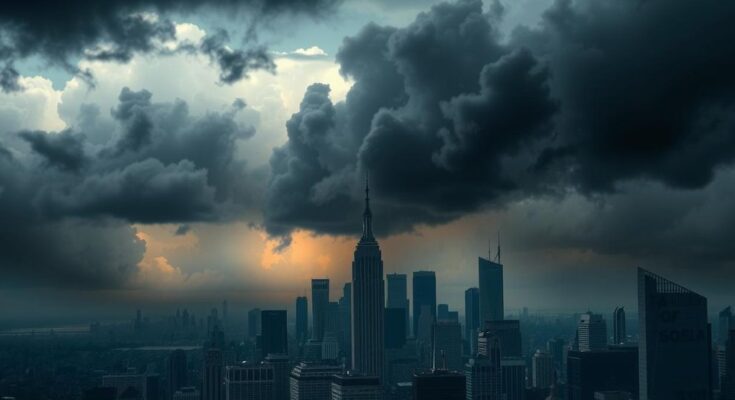The M23 rebels are advancing in the DRC, having captured Goma and now targeting Bukavu. This has prompted a call for military mobilization by the DRC government, while M23 expresses willingness for dialogue. The conflict is deeply rooted in historical ethnic tensions, and Rwanda’s backing poses a significant challenge to stability in the region.
M23 rebels have intensified their campaign in the Democratic Republic of Congo (DRC), having seized significant territory in Goma and advancing toward Bukavu, the provincial capital of South Kivu. This surge in violence has instilled fear among the local population, prompting an urgent military response from President Felix Tshisekedi as he mobilizes forces to counter this rebellion. DRC’s Defense Minister has publicly announced a commitment to combat the insurgents rather than engage in negotiations.
Despite the escalating tensions, M23 has expressed openness to dialogue with the DRC government, a proposition also endorsed by a regional coalition that includes Rwanda. The group, backed by approximately 4,000 Rwandan troops, aims to consolidate political power while claiming to protect the rights of ethnic Tutsis within Congo. Founded amid a complex backdrop of ethnic strife stemming from historical conflicts, M23 is one of over 100 armed factions vying for dominance in the mineral-rich eastern region.
The situation in Goma remains dire, characterized by rampant looting and a critical lack of essential services such as electricity and clean water. Reports indicate an alarming rise in violence, with bodies reportedly abandoned in the streets. The M23 insurgency is intertwined with historical grievances dating back to the Rwandan genocide in 1994, which saw the massacre of Tutsis and the subsequent refugee crisis impacting DRC.
Rwanda’s President Paul Kagame has engaged in discussions with Angola’s President Joao Lourenco for potential conflict resolution, illustrating a collaborative effort among African leaders to address the crisis in DRC effectively. This coordination comes as observers note that reversing the gains made by M23 could be more challenging than in previous conflicts, heightening concerns for regional stability and ongoing humanitarian crises.
The current escalation of conflict in the DRC can be traced back to deep-rooted ethnic tensions and historical massacres, particularly the Rwandan genocide in 1994. The M23 group emerged from these conflicts, alleging to defend the Tutsi minority in Congo. The DRC is rich in minerals essential for global technology, attracting multiple armed groups, including the M23. Regional dynamics involve external support from countries like Rwanda, which influences the politics and security landscape in the eastern DRC.
The M23 rebels’ advance toward Bukavu and the larger implications for DRC’s political stability underscore the challenges facing the nation. The government’s refusal to negotiate raises the stakes of military engagement, while international and regional diplomatic efforts continue to seek a peaceful resolution. With historical grievances at play, the complexity of the situation demands careful navigation to restore peace and address humanitarian needs in the region.
Original Source: www.vaticannews.va




